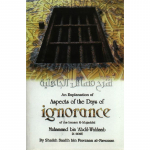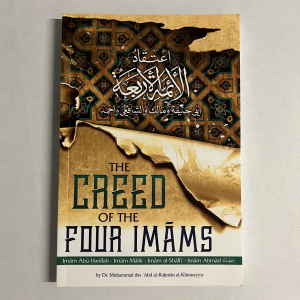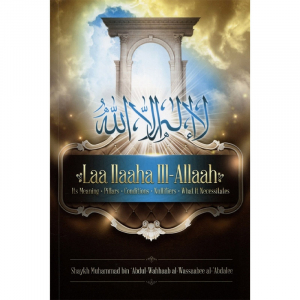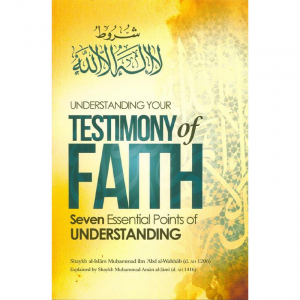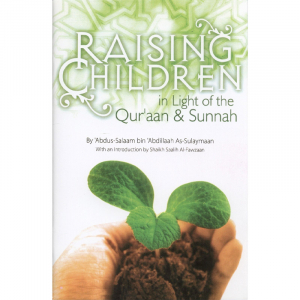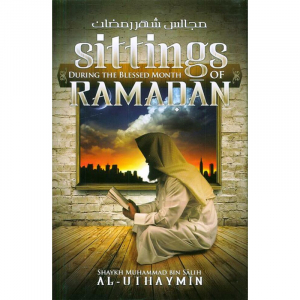- AL-HAFIZ IBN ABI AL-DUNYA
- AL-HAFIZ IBN RAJAB
- IBN QAYYIM AL-JAWZIYYAH
- IBN UTHAYMEEN
- IMAM ABU BAKR AL-AJURRI
- Imam al-Amir Muhammad ibn Isma`il al-Sana`ani
- Imam Al-Khatib al-Baghdadi
- Imam Al-Tirmidhi
- IMAM NAWAWI [D. 674 AH]
- Imam Ibn Abi Zayd al-Qayrawani (d. 389 AH)
- Imam Ibn Al-Jawzi
- IMAM IBN QUDAMAH AL-MAQDISI
- Imām Jalāl al-Dīn al-Suyūṭī
- Imām Muḥammad ibn ‘Abdu’l-Wahhāb
- Imam Muhammad Nasir al-Din al-Albani
- Shaikh ʿAbdu’l–Razzāq Ibn ʿAbdu’l-Muḥsin al-Badr
- Shaikh Ibn Baaz
- Shakyh Abdur-Rahman as-Sadi
- SHAYKH SALIH AL-FAWZAN
- SHAYKHUL-ISLĀM IBN TAYMIYYAH
- Yusuf Abdullah ibn Yusuf al-Wabil
Perished Nations Book of Penalties by Al-Hafiz Ibn Abi Al-Dunya (Darassunah)
€9.99 INCL. BTW
| Binding |
Softcover |
|---|---|
| Book Author |
Al-Haafiz Ibn Abi Dunyah |
| Brand | |
| ISBN |
9781904336716 |
| Pages |
176 |
| Publisher | |
| RRP (Publisher Price) |
£8.50 |
| Shelf |
7.2 |
-
 Voor 17.00 besteld, morgen in huis via PostNL
Voor 17.00 besteld, morgen in huis via PostNL
-
 Laagste Prijsgarantie: Zie je hetzelfde product elders goedkoper neem contact op en ontvang een 10% kortingsvoucher
Laagste Prijsgarantie: Zie je hetzelfde product elders goedkoper neem contact op en ontvang een 10% kortingsvoucher
-
 Gratis verzending vanaf 65 euro
Gratis verzending vanaf 65 euro
In stock
SKU:
9781904336716 @ 48.5
Categories: AL-HAFIZ IBN ABI AL-DUNYA (D. 281 H), Books, Dar As Sunnah Publications, English Books, General (English)
Description
“Perhaps your Lord will have mercy on you if you repent, but if you return to sin, We will return to punishment…” [Al-’Isra, 8]
Whether done in open or secret, sins have consequences. Some of their repercussions on an individual or society manifest in the removal of particular blessings, replaced then with trials and disgrace. When they transgressed against their Lord, belligerent nations came to witness agonising recompense, while those who belittled sins and insisted on committing them further hastened and increased the ferocity of their torment on earth. A Muslim is therefore, always fearful of any wrongdoing he falls into and is swift in turning back to Allah in repentance.
“Many are the towns whose end We delayed while they did wrong, then We seized them. And to Me is the final return.” [Al-Hajj, 48] Originally compiled by the author over eleven hundred years ago, this book deals with matters relating to sin and its fallout. He selected various Prophetic narrations and sayings of the early Muslims to form the first genre of its kind. With this English rendering of ‘Kitab al-Uqubat’, readers will be able to understand the relationship between actions and events where one is a direct result of the other. They will also recognise remedial measures that diminish the punishment of Allah and return them back into the fold of His safety and grace.


